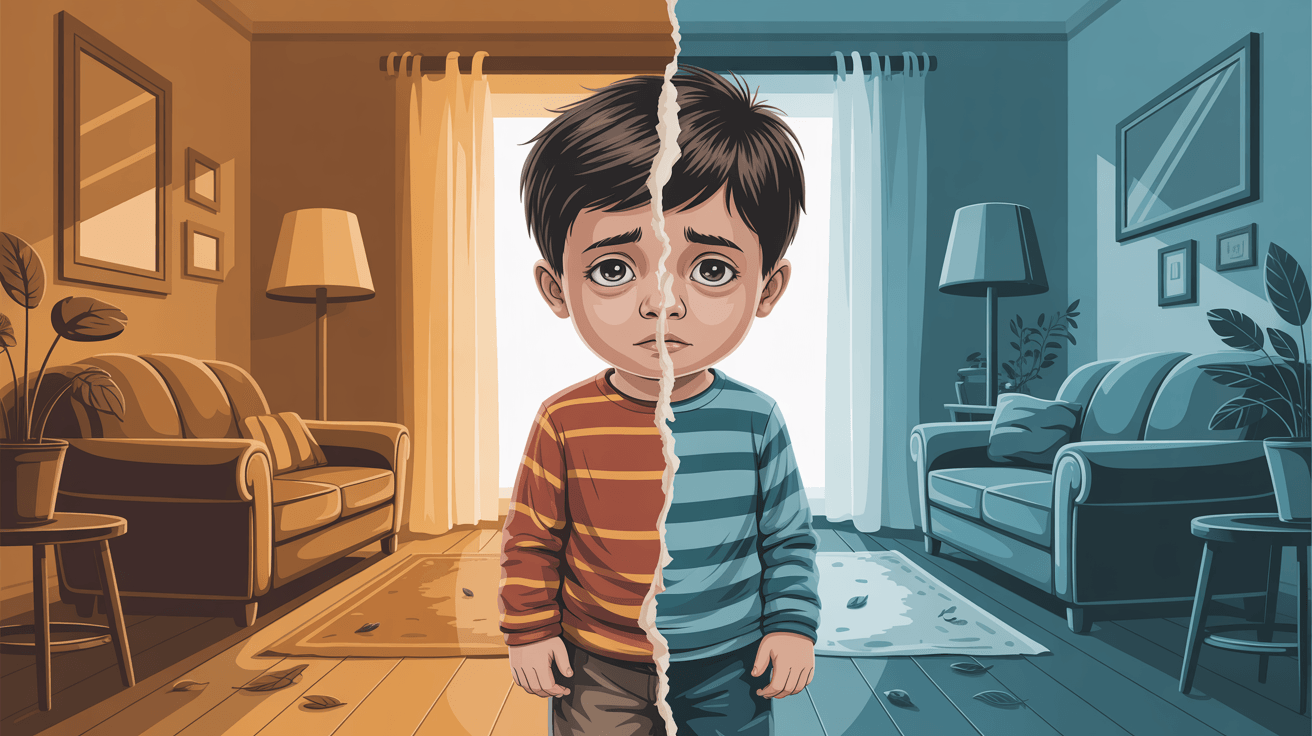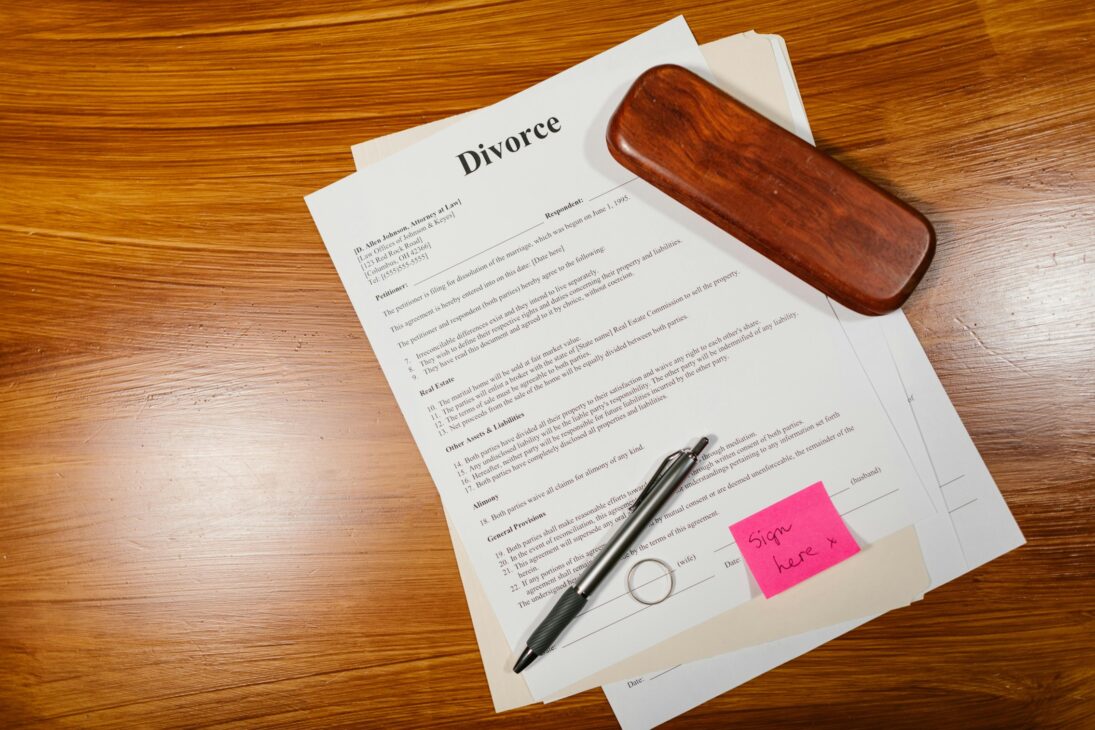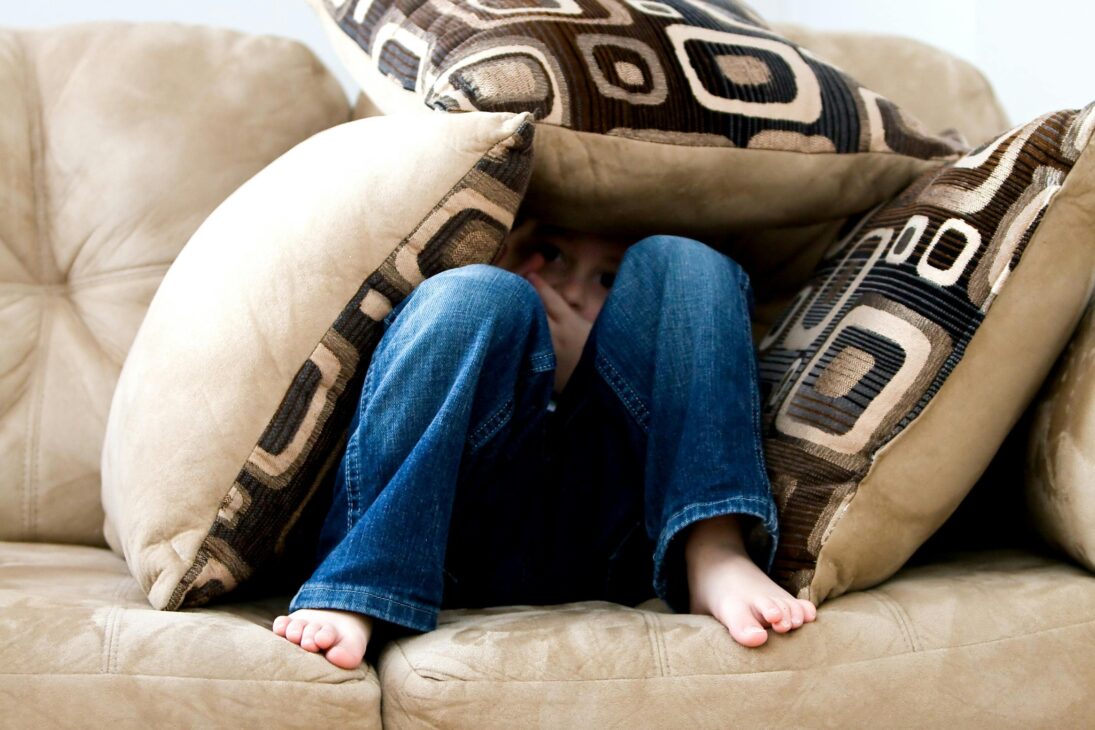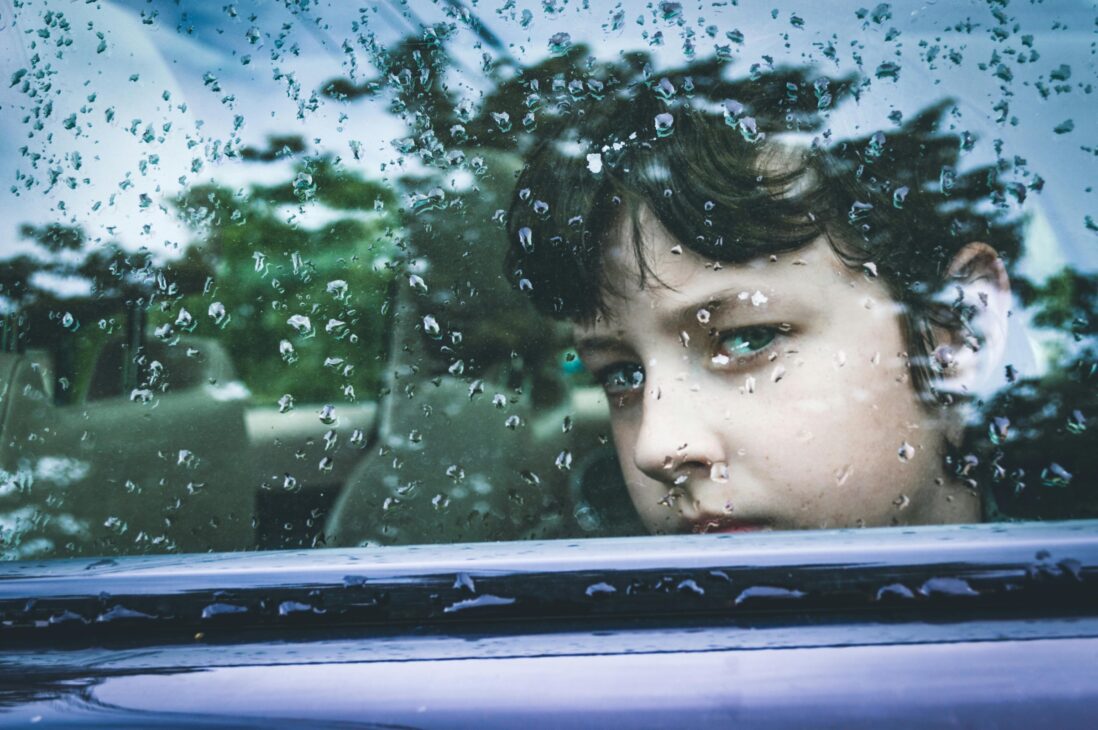Parental Alienation: The Quiet Battle That Hurts Kids the Most.

Quick Summary:
Parental alienation is emotional manipulation that hurts kids more than court battles do. This post unpacks the legal truth, the psychological damage, and one dad’s story of integrity in the middle of heartbreak.
Staying Grounded When Parental Alienation Tears You Apart
This is a story about integrity.
The kind you live even when your heart’s been shattered, and you still choose not to turn your pain into poison.
It’s for the parent whose love story fell apart.
Who was betrayed, abandoned, or erased, and still didn’t badmouth their ex.
Not because there was nothing to say. But because, deep down, they understood something bigger:
That person is still your child’s parent.
I remember it like it was yesterday: my mom nudging me toward the phone to talk to my dad.
A man who left when I was three. Didn’t support us financially. Didn’t show up emotionally. Well, let’s say he wasn’t exactly gunning for Father of the Year.
And yet, through all the hardship and heartbreak, my mother would look me in the eye and say:
“He is your father. Do it.”
That woman had more strength than a hundred men.
A hundred men with asteroids in their veins, who still cry at Marley & Me.
Look, I’m not here to romanticize anything. Not here to gloss over your pain or give anyone a free pass. I’m here to defend one idea:
Kids deserve a relationship with both parents, even if those parents can’t stand each other anymore.
But not every parent takes the high road. Some, knowingly or not, turn their hurt into a weapon. They make the child a messenger, a shield.
Or worse: a pawn.
That’s where heartbreak turns into real harm.
What Is Parental Alienation?
Parental alienation is when one parent pulls the child into adult conflict, not to protect them, but to punish or erase the other parent.
(Even if, honestly, they have every reason to stab a voodoo doll with barbecue skewers while blasting 90s breakup songs, they still don’t get to drag the kid into it.)
It’s not moodiness. Not a bad handoff. Not just “kids being kids.”
It’s emotional manipulation. The kind that reshapes how a child sees and trusts one of their parents. And it leaves deep scars.
It can sound like:
-
- “Your dad doesn’t really care about you.”
-
- “If your mom loved you, she wouldn’t have left.”
-
- “I don’t know why they didn’t show up… maybe they just forgot.”
Sometimes it’s quieter. A missed call, a lost invite, a shrug when the kid asks, “Can I call them?”
And while it’s not a criminal offence in Canada, family courts take it seriously.
Alienation isn’t always loud. But it’s always damaging.
Is Parental Alienation a Crime in Canada?

Short answer: No.
Parental alienation itself is not a criminal offence under the Criminal Code of Canada.
But that doesn’t mean alienating behaviour gets a free pass. Several related actions can cross legal lines, including:
-
- Harassment: repeated messaging, intimidation, or interfering with a parent’s access to the child
-
- Defamation: making false statements that damage the other parent’s reputation
-
- False accusations of abuse: deliberately misleading authorities or courts, which can carry serious consequences
And while alienation itself isn’t in the Criminal Code, the emotional and psychological impact is acknowledged in family law. The Department of Justice clearly states:
“Emotional abuse, such as undermining a child’s relationship with the other parent, may be considered family violence under the Divorce Act.”
In other words: courts can act, even if police won’t.
There’s also a growing debate among legal professionals and researchers about whether extreme cases of alienation should be criminalized. As the GBV Learning Network notes:
“There is limited consensus on whether alienating behaviours rise to the level of criminal conduct… but these behaviours can certainly amount to psychological abuse.”
So, while you won’t see someone arrested for “alienation,” you might see them in court for contempt, defamation, or custody interference, especially if there’s documentation.
How Parental Alienation Affects a Child

You might be thinking, “Okay, but is this really that serious?”
If you’re not convinced, or if you need to convince someone else to stop the damage, just read this excerpt from a peer-reviewed study out loud.
Man, this is brutal:
“…the psychological consequences for children subjected to parental alienating behaviours are clear, with both negative immediate and long-term effects. These include self-esteem issues, anxiety, depression, substance use, increased suicidality, school-related difficulties, and a greater risk of being alienated from their children in the future. Children exposed to parental alienating behaviours may develop a confused sense of self-perception and fail to remember how to trust their perceptions and feelings, resulting in an uncertain identity, lack of self-esteem, and deep insecurity. These difficulties can lead to the inadequate and age-inappropriate development of independence and individuality. This can lead to an increased vulnerability to mental health disorders such as depression, anxiety, eating and feeding disorders, posttraumatic stress disorder (PTSD), and other psychosomatic disorders.”
Source: Parental Alienating Behaviours: An Unacknowledged Form of Family Violence – PubMed
Key takeaways from that terrifying paragraph:
-
- Kids may suffer from anxiety, depression, substance use, and even suicidality
-
- They can lose their sense of self, trust in their own feelings, and confidence
-
- They become more vulnerable to serious disorders like PTSD and eating issues
-
- They’re at risk of reliving the cycle, this time, as parents pushed out of their own children’s lives.
And it doesn’t stop there.
According to PsychLaw, alienated children also deal with:
-
- Guilt and shame
-
- Conflicted loyalty and emotional confusion
-
- Attachment trauma and fractured self-worth
This isn’t about “one bad breakup.” This is a long-term emotional injury that can follow your child into adulthood, therapy, and their own future family.
Here’s what NOT to do:

-
- Don’t retaliate. Alienation is emotional manipulation. If you mirror it, you become part of the mess your kid’s stuck in.
- Don’t counter-manipulate. Your kid doesn’t need two versions of the truth competing in their head. They need stability, not spin.
- Don’t vanish. Even when it feels hopeless. Even when they don’t want to talk, presence matters. Proximity builds memory.
- Don’t text anything you wouldn’t want read aloud in court. Because it might be. Keep every message clear, calm, and clean.
- Don’t recruit your child as an ally. You’re the grown-up. Don’t make them your therapist.
Instead, do this:
-
- Document everything. Not for revenge, but for reality. Dates, times, patterns. Judges can’t act on feelings; they act on facts.
-
- Get support. Talk to a therapist who understands alienation and co-parenting trauma.
-
- Lean on professional guidance. The Canadian Justice Department recommends using mediation, parenting coordinators, or family therapists when dealing with conflict and access issues.
“Children benefit when their parents can cooperate and communicate effectively.”
The Long Game
Every time you show up calmly, consistently, and quietly, you’re building trust that might not pay off this week or next year. But it will matter. One day, your kid might look back and realize: “He never gave up on me.”
TL;DR: What Parental Alienation Really Means (And Why It’s a Big Deal)
Parental alienation happens when one parent manipulates a child into rejecting the other, usually without a valid reason.
It’s not a criminal offence in Canada, but family courts take it seriously under the Divorce Act, especially as a form of emotional abuse or coercive control.
This isn’t just conflict or drama; it’s psychological harm with long-term effects.
Kids affected by alienation often face:
-
- Anxiety, depression, and low self-esteem
-
- Attachment issues and emotional confusion
-
- Higher risk of substance use and future relationship breakdowns
-
- It’s not about “winning” custody. It’s about protecting a child’s right to a safe, healthy bond with both parents.
Know Someone Dealing with This?
If someone you know is quietly going through this kind of chaos, send them this post. It might be beneficial.
And if you’re the one in it? Shoot me a message at hello@dadinpanic.com.
Want more real stories, dad-to-dad honesty, and zero alpha-bro energy?
Join the newsletter. It’s like venting in the school parking lot, minus the judgment and juice boxes.
References:
Justice Canada – Divorce and Family Violence
Justice Canada – Parenting and Contact After Separation
GBV Learning Network – Issue 34: Parental Alienation
PubMed – Parental Alienating Behaviours: An Unacknowledged Form of Family Violence
PsychLaw – What Are the Symptoms and Consequences of Parental Alienation?
American Psychiatric Association – DSM-5-TR Overview
FAQ
Parental alienation is a recognized pattern where one parent turns a child against the other. Family courts treat it seriously in Canada, especially when it causes emotional harm.
Parental Alienation Syndrome (PAS) is no longer an accepted term. Canadian psychological or legal standards have never accepted it. Also, it is not in the DSM-5, the diagnostic manual used by mental health professionals across North America, including Canada.
Legal and mental health experts in Canada focus on:
- Alienating behaviours
- Emotional abuse or coercive control
- How do these affect the child’s well-being
In family law, the focus isn’t on labels like PAS; it’s on protecting children from psychological harm.







